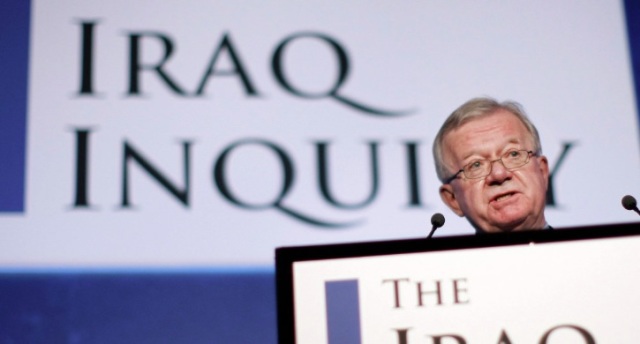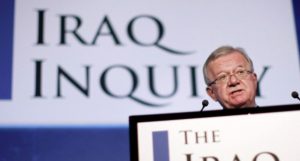uncategorized
The Attempted Coup in Turkey: What Next?
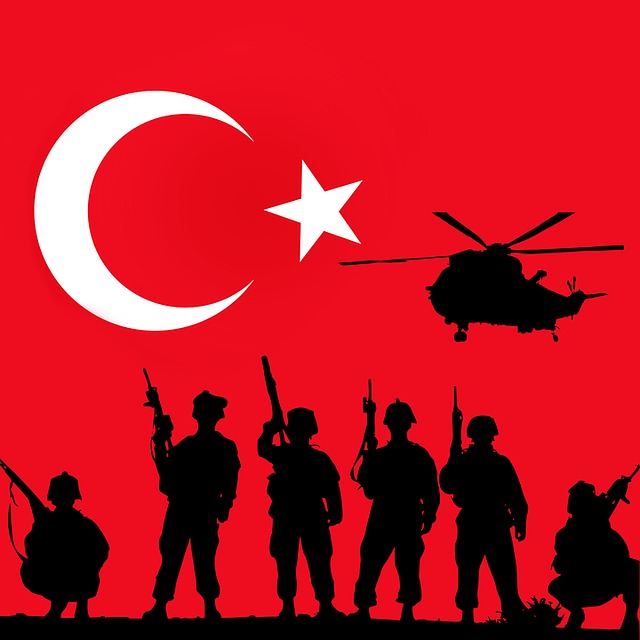 To the relief of most Turks and of most of the global community, the military coup attempt in Turkey failed miserably. But the coup attempt itself and subsequent events in Turkey raise a number of questions that are of concern to Turks and the well-wishers of that geopolitically important country. While the elected government of President Erdogan deserved to survive, it does not follow that, in that process, democracy in Turkey got strengthened. If the coup had succeeded, Turkey would have entered an unchartered and perilous territory. It now appears that Turkey is being led by Erdogan in a direction that is dangerous for the country.
To briefly recall the events in chronological order: When the coup started with rebel military units taking control over the Bosporus Bridge linking Asia and Europe at 10:29 p.m. local time on Friday, 15 July 2016, President Erdogan was holidaying in the beach resort of Mirmaris. The rebels took control of some airports and traffic hubs, bombed the parliament and deployed tanks in front of the palace of the President in Ankara. The rebels got the state television to read out their statement by 11:25 p.m., in which they claimed that they had taken over power and advised the people to remain indoors. Only a few minutes later, it became known that the army chief was under detention. By 11:47 p.m., Erdogan whose whereabouts was unknown, availed of his smart phone to address the people through private TV channels. He told the people that he was in charge and exhorted them to come out into the street and defy the ban imposed by the rebels. The mosques too got active and the faithful were told to be on the street to confront the tanks of the rebels. Hundreds responded, the rebels got cold feet, and many of them were beaten up by the enraged citizens. By 03:20 a.m., Erdogan’s business jet landed at Istanbul airport which had been secured by his supporters. By 04:00 a.m., Erdogan addressed the nation on television. By 06:39 a.m., he addressed a large crowd on the street. And by 06:49 a.m., the rebels guarding the Bosporus Bridge surrendered themselves to the police and the people, marking the collapse of the coup. In short, the coup started to collapse when Erdogan talked to the people through his smart phone and the collapse was completed in practical terms when the rebels surrendered at the Bosporus.
(more…)
To the relief of most Turks and of most of the global community, the military coup attempt in Turkey failed miserably. But the coup attempt itself and subsequent events in Turkey raise a number of questions that are of concern to Turks and the well-wishers of that geopolitically important country. While the elected government of President Erdogan deserved to survive, it does not follow that, in that process, democracy in Turkey got strengthened. If the coup had succeeded, Turkey would have entered an unchartered and perilous territory. It now appears that Turkey is being led by Erdogan in a direction that is dangerous for the country.
To briefly recall the events in chronological order: When the coup started with rebel military units taking control over the Bosporus Bridge linking Asia and Europe at 10:29 p.m. local time on Friday, 15 July 2016, President Erdogan was holidaying in the beach resort of Mirmaris. The rebels took control of some airports and traffic hubs, bombed the parliament and deployed tanks in front of the palace of the President in Ankara. The rebels got the state television to read out their statement by 11:25 p.m., in which they claimed that they had taken over power and advised the people to remain indoors. Only a few minutes later, it became known that the army chief was under detention. By 11:47 p.m., Erdogan whose whereabouts was unknown, availed of his smart phone to address the people through private TV channels. He told the people that he was in charge and exhorted them to come out into the street and defy the ban imposed by the rebels. The mosques too got active and the faithful were told to be on the street to confront the tanks of the rebels. Hundreds responded, the rebels got cold feet, and many of them were beaten up by the enraged citizens. By 03:20 a.m., Erdogan’s business jet landed at Istanbul airport which had been secured by his supporters. By 04:00 a.m., Erdogan addressed the nation on television. By 06:39 a.m., he addressed a large crowd on the street. And by 06:49 a.m., the rebels guarding the Bosporus Bridge surrendered themselves to the police and the people, marking the collapse of the coup. In short, the coup started to collapse when Erdogan talked to the people through his smart phone and the collapse was completed in practical terms when the rebels surrendered at the Bosporus.
(more…)
July 21st, 2016 | category:uncategorized |
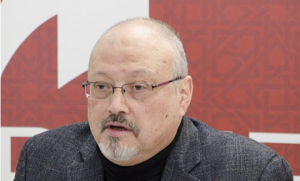 Seventeen days after the October 2 "disappearance" of Jamal Khashoggi, Saudi Arabia officially stated that he was killed in its consulate in Turkey when he went there to collect papers permitting him to marry his Turkish fiancée Hatice Cengiz. The marriage had been fixed for October 3.
Cengiz had waited for hours in vain for Khashoggi to come out of the consulate and informed Reuters about his 'disappearance' on October 3. The same day, Saudi Crown Prince Mohammed bin Salman (MbS) told the US news agency Bloomberg that he did not know where the journalist was and that consent would be given to Turkey to conduct an investigation inside the Consulate if it were to ask for one. MbS added that he 'had nothing to hide'.
On October 4, the Saudi Embassy claimed that the journalist had left the consulate and that it was trying to ascertain his whereabouts. Reports emerged on October 7 that Khashoggi was killed in the consulate, the veracity of which Saudi Arabia angrily denied. The next day, the Saudi Ambassador in Washington, Prince Khalid bin Salman (brother of MbS) sent an unsolicited WhatsApp message to a journalist claiming that Khashoggi had left the consulate. The same day, unnamed Turkish officials told Reuters that Khashoggi had been killed inside the consulate.
(more…)
Seventeen days after the October 2 "disappearance" of Jamal Khashoggi, Saudi Arabia officially stated that he was killed in its consulate in Turkey when he went there to collect papers permitting him to marry his Turkish fiancée Hatice Cengiz. The marriage had been fixed for October 3.
Cengiz had waited for hours in vain for Khashoggi to come out of the consulate and informed Reuters about his 'disappearance' on October 3. The same day, Saudi Crown Prince Mohammed bin Salman (MbS) told the US news agency Bloomberg that he did not know where the journalist was and that consent would be given to Turkey to conduct an investigation inside the Consulate if it were to ask for one. MbS added that he 'had nothing to hide'.
On October 4, the Saudi Embassy claimed that the journalist had left the consulate and that it was trying to ascertain his whereabouts. Reports emerged on October 7 that Khashoggi was killed in the consulate, the veracity of which Saudi Arabia angrily denied. The next day, the Saudi Ambassador in Washington, Prince Khalid bin Salman (brother of MbS) sent an unsolicited WhatsApp message to a journalist claiming that Khashoggi had left the consulate. The same day, unnamed Turkish officials told Reuters that Khashoggi had been killed inside the consulate.
(more…)
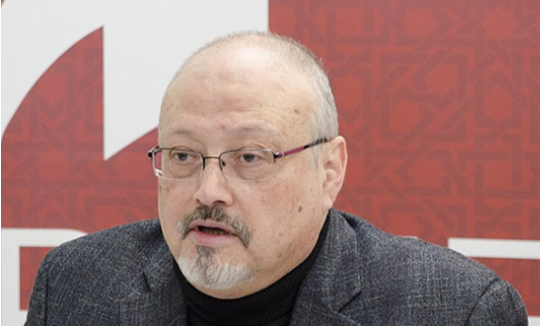

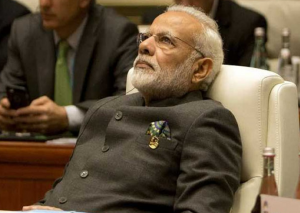 Now that the Modi government has done more than four years and we still do not know as yet whether Modi will succeed in his plan to succeed himself as Prime Minister following the 2019 general election, it is time to draw a balance sheet of India’s ‘Modified’ foreign policy with its emphasis on a “56-inch chest”. Prime Minister Narendra Modi invited the South Asian Association of Regional Cooperation (SAARC) heads of state/government for his inauguration, a gesture that was almost universally praised by the media and the academia with none pointing out that it was an attempt to project himself as the 'new emperor' of South Asia. If the intention was, as advertised assiduously, was to improve relations with the neighbours, the current state of disrepair in relations with Pakistan and Nepal shows that Modi has been floundering.
As to do full justice to the theme would require a series of essays, or better still, a book, this article will confine itself to two topics about how India under Modi has dealt with the US. Dealing with the US is, for most countries, the most important part of foreign policy despite the fashionable talk of our living in a multi-polar world. That we live in a financially unipolar world dominated by the US dollar with US imposing sanctions on other states, either through an obedient UN Security Council, or otherwise, is often ignored. The first topic for us is US’ sanctions on Iran, and the second is US sanctions on states entering into ‘significant’ defense deals with Russia in the context of the deal with Russia on S-400 anti-missile system.
Now that the Modi government has done more than four years and we still do not know as yet whether Modi will succeed in his plan to succeed himself as Prime Minister following the 2019 general election, it is time to draw a balance sheet of India’s ‘Modified’ foreign policy with its emphasis on a “56-inch chest”. Prime Minister Narendra Modi invited the South Asian Association of Regional Cooperation (SAARC) heads of state/government for his inauguration, a gesture that was almost universally praised by the media and the academia with none pointing out that it was an attempt to project himself as the 'new emperor' of South Asia. If the intention was, as advertised assiduously, was to improve relations with the neighbours, the current state of disrepair in relations with Pakistan and Nepal shows that Modi has been floundering.
As to do full justice to the theme would require a series of essays, or better still, a book, this article will confine itself to two topics about how India under Modi has dealt with the US. Dealing with the US is, for most countries, the most important part of foreign policy despite the fashionable talk of our living in a multi-polar world. That we live in a financially unipolar world dominated by the US dollar with US imposing sanctions on other states, either through an obedient UN Security Council, or otherwise, is often ignored. The first topic for us is US’ sanctions on Iran, and the second is US sanctions on states entering into ‘significant’ defense deals with Russia in the context of the deal with Russia on S-400 anti-missile system.
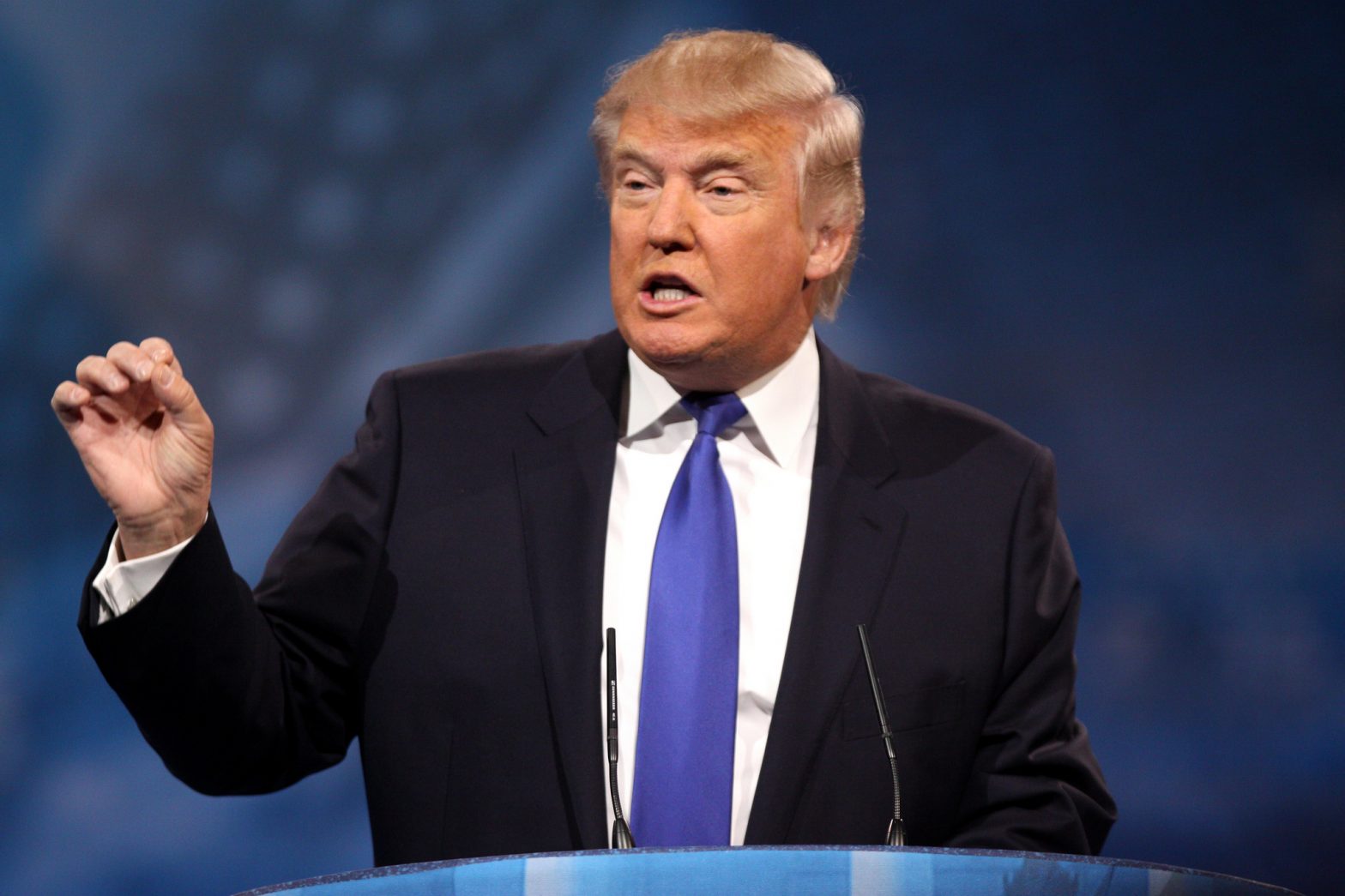
 On 8 May 2018, US President Donald Trump, true to his style and ‘America First’ philosophy, walked out of the Iran nuclear deal, technically known as the Joint Comprehensive Plan of Action (JCPOA). A fortnight has elapsed and it would be pertinent to examine the geopolitical implications of Trump’s decision.
On 8 May 2018, US President Donald Trump, true to his style and ‘America First’ philosophy, walked out of the Iran nuclear deal, technically known as the Joint Comprehensive Plan of Action (JCPOA). A fortnight has elapsed and it would be pertinent to examine the geopolitical implications of Trump’s decision.
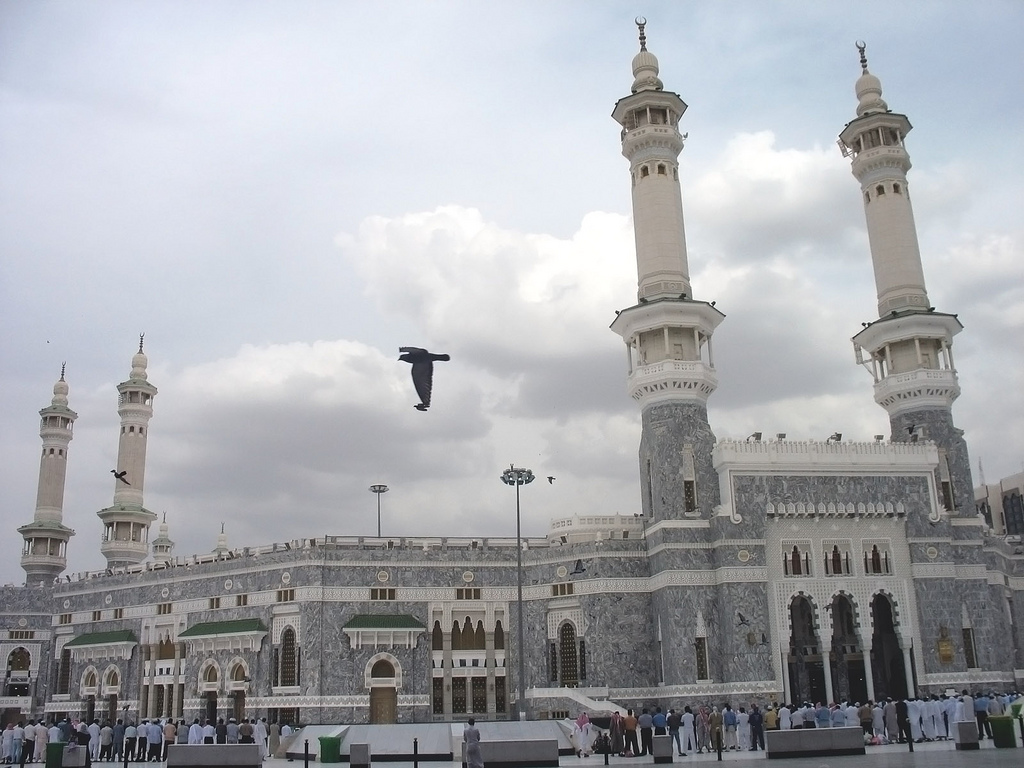
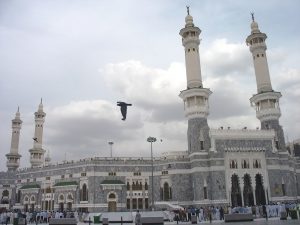 Wahhabism is transforming Indo-Islamic civilisation. A scholarly yet accessible essay collection analyses the interface between West and South Asian Islam.
This book explores the religious interface between the Gulf and South Asia. By “Gulf” the editors mean West Asia, not just the 6-member Gulf Cooperation Council. South Asia has the largest Muslim population of any region in the world—500 million. In the course of Islamisation, which began with the 8th century invasion of Sindh by Muhammad bin Qasim, the region developed a distinct Indo-Islamic Civilisation culminating in the Mughal Empire. While paying lip service to the religious centres in the Gulf, including Mecca and Medina, this civilisation cultivated its own variety of Islam based on Sufism.
Over the last five decades or so, pan-Islamic ties between these two regions have intensified. Eleven scholars from different continents have contributed to this volume which explores “the ideological, educational, and spiritual networks, which have gained momentum due to political strategies, migration flows and increased communications.” It also examines the “cultural proxy war” between Iran and Saudi Arabia.
Saudi-funded madrasas have reduced the hold of Sufi Islam. Pakistan’s government has no reliable figures for the number of madrasas, nor for the inflow of Saudi money.
Wahhabism is transforming Indo-Islamic civilisation. A scholarly yet accessible essay collection analyses the interface between West and South Asian Islam.
This book explores the religious interface between the Gulf and South Asia. By “Gulf” the editors mean West Asia, not just the 6-member Gulf Cooperation Council. South Asia has the largest Muslim population of any region in the world—500 million. In the course of Islamisation, which began with the 8th century invasion of Sindh by Muhammad bin Qasim, the region developed a distinct Indo-Islamic Civilisation culminating in the Mughal Empire. While paying lip service to the religious centres in the Gulf, including Mecca and Medina, this civilisation cultivated its own variety of Islam based on Sufism.
Over the last five decades or so, pan-Islamic ties between these two regions have intensified. Eleven scholars from different continents have contributed to this volume which explores “the ideological, educational, and spiritual networks, which have gained momentum due to political strategies, migration flows and increased communications.” It also examines the “cultural proxy war” between Iran and Saudi Arabia.
Saudi-funded madrasas have reduced the hold of Sufi Islam. Pakistan’s government has no reliable figures for the number of madrasas, nor for the inflow of Saudi money.
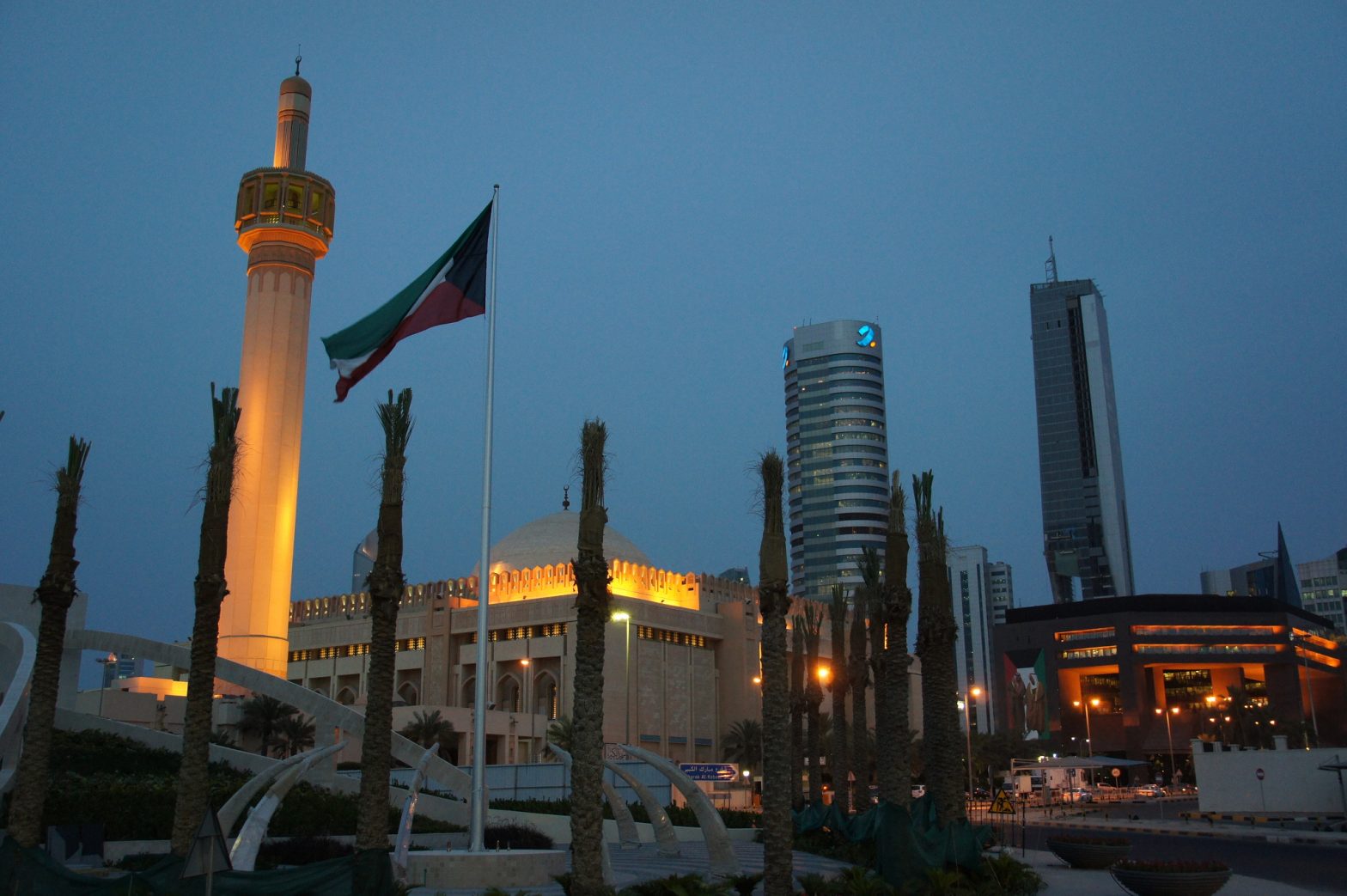
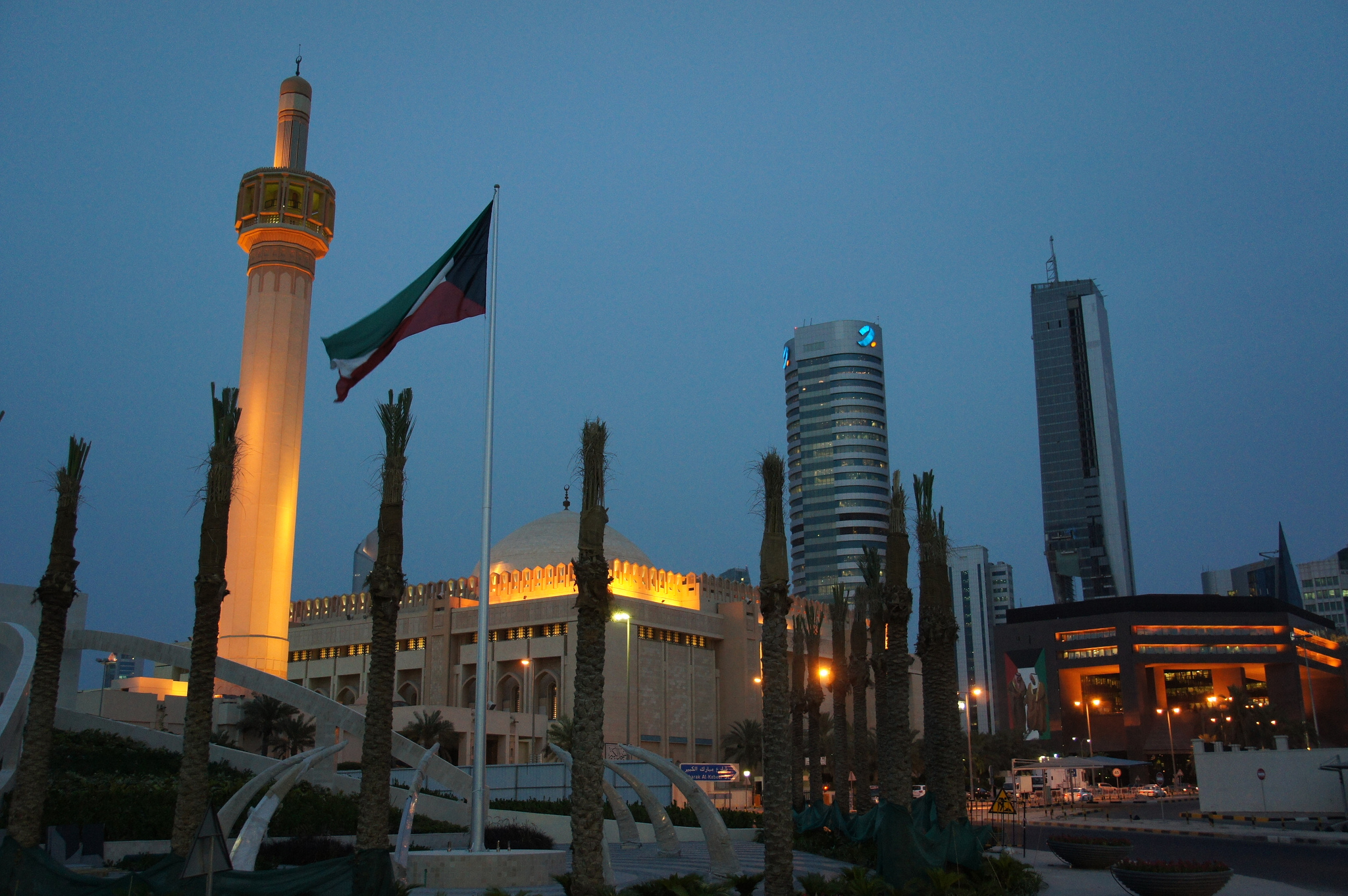 The failed GCC summit points to a stalemate in West Asia that might last for a while, adversely affecting the economies of its members, and only a change in Saudi policy can reunite the squabbling kingdoms.
The aborted Gulf Cooperation Council (GCC) summit in Kuwait scheduled for December 5-6 raises the question whether this regional integration project, until recently one of the more successful of such projects, has collapsed or not. When the GCC was formed in 1981, the main motivation was to address the perceived threat from Iran by raising the level of synergy among the member-states who had much in common. Even without hindsight it can be said that the threat from Iran was exaggerated.
It is paradoxical that Qatar, one of the founding members, has been compelled to embrace Iran owing to Saudi Arabia’s actions. In short, Saudi Arabia, while seeking confrontation with Iran in order to weaken its bete noire, has only strengthened it.
Let us look at what happened in Kuwait. The Emir of Kuwait, Sheikh Sabah, 88, was working hard to reconcile Saudi Arabia and Qatar even before the blockade against Qatar was announced by Saudi Arabia, the United Arab Emirates (UAE), Bahrain and Egypt on June 5, 2017.
The failed GCC summit points to a stalemate in West Asia that might last for a while, adversely affecting the economies of its members, and only a change in Saudi policy can reunite the squabbling kingdoms.
The aborted Gulf Cooperation Council (GCC) summit in Kuwait scheduled for December 5-6 raises the question whether this regional integration project, until recently one of the more successful of such projects, has collapsed or not. When the GCC was formed in 1981, the main motivation was to address the perceived threat from Iran by raising the level of synergy among the member-states who had much in common. Even without hindsight it can be said that the threat from Iran was exaggerated.
It is paradoxical that Qatar, one of the founding members, has been compelled to embrace Iran owing to Saudi Arabia’s actions. In short, Saudi Arabia, while seeking confrontation with Iran in order to weaken its bete noire, has only strengthened it.
Let us look at what happened in Kuwait. The Emir of Kuwait, Sheikh Sabah, 88, was working hard to reconcile Saudi Arabia and Qatar even before the blockade against Qatar was announced by Saudi Arabia, the United Arab Emirates (UAE), Bahrain and Egypt on June 5, 2017.
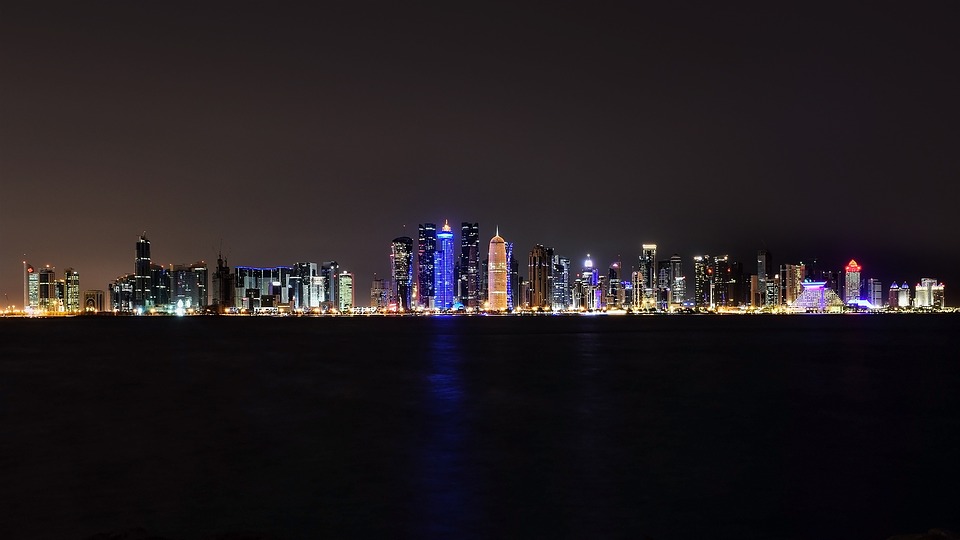
 Saudi Arabia, United Arab Emirates (UAE), Bahrain and Egypt had listed 13 demands on June 23, 2017, warning that there would be serious consequences if Qatar failed to yield by July 2. Qatar rejected the ultimatum and the four countries have not yet carried out their threats. Instead, they have softened their stand, vaguely signaling that it might be enough if Qatar were to accede to ‘Six Principles’. In short, there has been no escalation and we can clearly see a degree of de-escalation.
Saudi Arabia, United Arab Emirates (UAE), Bahrain and Egypt had listed 13 demands on June 23, 2017, warning that there would be serious consequences if Qatar failed to yield by July 2. Qatar rejected the ultimatum and the four countries have not yet carried out their threats. Instead, they have softened their stand, vaguely signaling that it might be enough if Qatar were to accede to ‘Six Principles’. In short, there has been no escalation and we can clearly see a degree of de-escalation.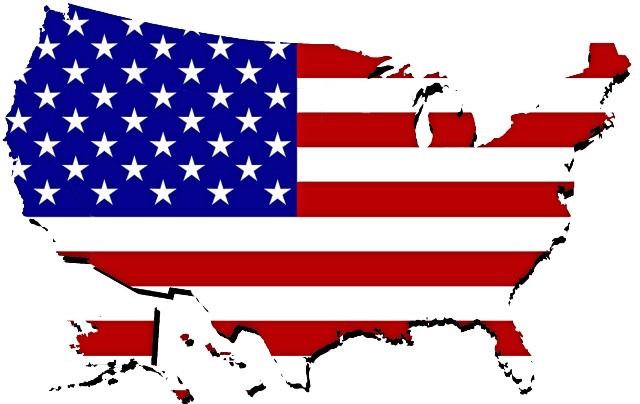
 President Barack Obama, in his last official overseas tour to Greece, Germany, and Peru, reassured Europe that there would be continuity in American foreign policy under President-elect Donald Trump. While Obama tried to convince his interlocutors about continuity in US policy, Trump’s statements during the campaign brought alarm and concern to America’s allies. Obama himself had called Trump as ‘unqualified’ to be President and a peddler of ‘wacky ideas’, while touring Asia in September 2016. Even if a good part of Trump’s rather colorful choice of words was meant to attract voters, his remarks have set off alarm bells in world capitals. What then could be the impact of the Trump victory on US foreign policy?
President Barack Obama, in his last official overseas tour to Greece, Germany, and Peru, reassured Europe that there would be continuity in American foreign policy under President-elect Donald Trump. While Obama tried to convince his interlocutors about continuity in US policy, Trump’s statements during the campaign brought alarm and concern to America’s allies. Obama himself had called Trump as ‘unqualified’ to be President and a peddler of ‘wacky ideas’, while touring Asia in September 2016. Even if a good part of Trump’s rather colorful choice of words was meant to attract voters, his remarks have set off alarm bells in world capitals. What then could be the impact of the Trump victory on US foreign policy?
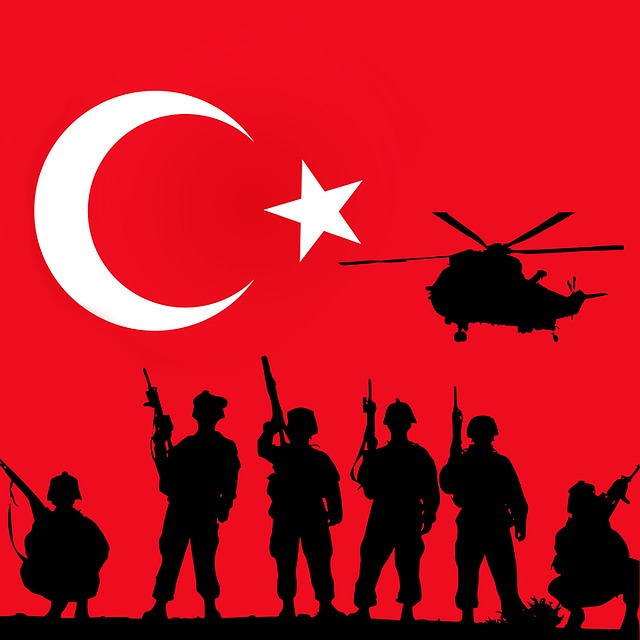
 To the relief of most Turks and of most of the global community, the military coup attempt in Turkey failed miserably. But the coup attempt itself and subsequent events in Turkey raise a number of questions that are of concern to Turks and the well-wishers of that geopolitically important country. While the elected government of President Erdogan deserved to survive, it does not follow that, in that process, democracy in Turkey got strengthened. If the coup had succeeded, Turkey would have entered an unchartered and perilous territory. It now appears that Turkey is being led by Erdogan in a direction that is dangerous for the country.
To briefly recall the events in chronological order: When the coup started with rebel military units taking control over the Bosporus Bridge linking Asia and Europe at 10:29 p.m. local time on Friday, 15 July 2016, President Erdogan was holidaying in the beach resort of Mirmaris. The rebels took control of some airports and traffic hubs, bombed the parliament and deployed tanks in front of the palace of the President in Ankara. The rebels got the state television to read out their statement by 11:25 p.m., in which they claimed that they had taken over power and advised the people to remain indoors. Only a few minutes later, it became known that the army chief was under detention. By 11:47 p.m., Erdogan whose whereabouts was unknown, availed of his smart phone to address the people through private TV channels. He told the people that he was in charge and exhorted them to come out into the street and defy the ban imposed by the rebels. The mosques too got active and the faithful were told to be on the street to confront the tanks of the rebels. Hundreds responded, the rebels got cold feet, and many of them were beaten up by the enraged citizens. By 03:20 a.m., Erdogan’s business jet landed at Istanbul airport which had been secured by his supporters. By 04:00 a.m., Erdogan addressed the nation on television. By 06:39 a.m., he addressed a large crowd on the street. And by 06:49 a.m., the rebels guarding the Bosporus Bridge surrendered themselves to the police and the people, marking the collapse of the coup. In short, the coup started to collapse when Erdogan talked to the people through his smart phone and the collapse was completed in practical terms when the rebels surrendered at the Bosporus.
To the relief of most Turks and of most of the global community, the military coup attempt in Turkey failed miserably. But the coup attempt itself and subsequent events in Turkey raise a number of questions that are of concern to Turks and the well-wishers of that geopolitically important country. While the elected government of President Erdogan deserved to survive, it does not follow that, in that process, democracy in Turkey got strengthened. If the coup had succeeded, Turkey would have entered an unchartered and perilous territory. It now appears that Turkey is being led by Erdogan in a direction that is dangerous for the country.
To briefly recall the events in chronological order: When the coup started with rebel military units taking control over the Bosporus Bridge linking Asia and Europe at 10:29 p.m. local time on Friday, 15 July 2016, President Erdogan was holidaying in the beach resort of Mirmaris. The rebels took control of some airports and traffic hubs, bombed the parliament and deployed tanks in front of the palace of the President in Ankara. The rebels got the state television to read out their statement by 11:25 p.m., in which they claimed that they had taken over power and advised the people to remain indoors. Only a few minutes later, it became known that the army chief was under detention. By 11:47 p.m., Erdogan whose whereabouts was unknown, availed of his smart phone to address the people through private TV channels. He told the people that he was in charge and exhorted them to come out into the street and defy the ban imposed by the rebels. The mosques too got active and the faithful were told to be on the street to confront the tanks of the rebels. Hundreds responded, the rebels got cold feet, and many of them were beaten up by the enraged citizens. By 03:20 a.m., Erdogan’s business jet landed at Istanbul airport which had been secured by his supporters. By 04:00 a.m., Erdogan addressed the nation on television. By 06:39 a.m., he addressed a large crowd on the street. And by 06:49 a.m., the rebels guarding the Bosporus Bridge surrendered themselves to the police and the people, marking the collapse of the coup. In short, the coup started to collapse when Erdogan talked to the people through his smart phone and the collapse was completed in practical terms when the rebels surrendered at the Bosporus.
